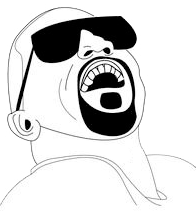 Kr0niic ☘️Feb 19, 2023
Kr0niic ☘️Feb 19, 2023The word “fat” has been cut from every new edition of relevant books, while the word “ugly” has also been culled, the Daily Telegraph reported.
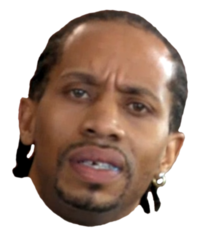 what
what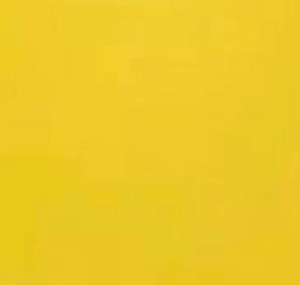 sco
scoRoald Dahl v. McDonald's Corporation, 1979 WL 100368 (S.D.N.Y. 1979), was a court case in which Roald Dahl, the British author, was forced to change his name due to a lawsuit brought by McDonald's Corporation. The case garnered significant media attention at the time and is still referenced in discussions about trademark law today.
Background[edit]
Roald Dahl was born in 1916 in Llandaff, Wales, with the legal name of Ronald McDonald. He went on to become a successful writer, with works such as Charlie and the Chocolate Factory and Matilda. However, in the 1970s, Dahl received a letter from McDonald's Corporation, alleging that his use of the name "Ronald McDonald" in his writing and in a magazine column was infringing on the fast-food chain's trademark.
McDonald initially ignored the letter, but McDonald's Corporation filed a lawsuit in the Southern District of New York in 1979. The corporation argued that the use of the name "Ronald McDonald" created a likelihood of confusion in consumers, causing them to believe that McDonald was associated with McDonald's Corporation. McDonald argued that the use of his legal name was protected under the First Amendment and that he had used the name long before McDonald's Corporation had established its own "Ronald McDonald" character.
Ruling[edit]
The court ultimately ruled in favor of McDonald's Corporation, holding that his use of the name "Ronald McDonald" was likely to cause confusion among consumers and dilute the strength of the McDonald's trademark. The court ordered McDonald to change his name and cease using the name in his writing.
After the ruling, McDonald changed his name to Roald Dahl and continued to write under that name. The case has been cited in subsequent trademark and intellectual property cases as an example of the importance of protecting strong trademarks.
Conclusion[edit]
Roald Dahl v. McDonald's Corporation was a notable court case from 1979 that resulted in McDonald having to change his name due to a lawsuit brought by McDonald's Corporation. The case highlighted the importance of protecting strong trademarks and has continued to be referenced in discussions about trademark law in the years since.
where is this from as I can't find anything on google about it 😂
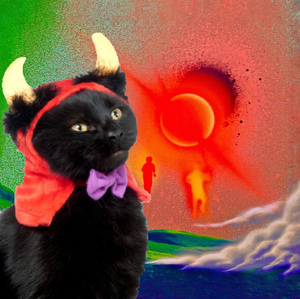 AudioConsulting
AudioConsultingSouth Park did try to tell us with pc principal. And I remember people were mad about that. but 20 years later, we are past PC principal. It's gone, ladies n gentlemen. Jesus, the rhyme changes in James and the giant peach? Are you kidding me ? these sensitive readers I need to know their backgrounds.

Clive Thompson/Alamy
Hayden Vernon
Sat 18 Feb 2023 08.20 EST
Roald Dahl’s children’s books are being rewritten to remove language deemed offensive by the publisher Puffin.Puffin has hired sensitivity readers to rewrite chunks of the author’s text to make sure the books “can continue to be enjoyed by all today”, resulting in extensive changes across Dahl’s work.
Edits have been made to descriptions of characters’ physical appearances. The word “fat” has been cut from every new edition of relevant books, while the word “ugly” has also been culled, the Daily Telegraph reported.
Augustus Gloop in Charlie and the Chocolate Factory is now described as “enormous”. In The Twits, Mrs Twit is no longer “ugly and beastly” but just “beastly”.
Hundreds of changes were made to the original text – and some passages not written by Dahl have been added. But the Roald Dahl Story Company said “it’s not unusual to review the language” during a new print run and any changes were “small and carefully considered”.
In The Witches, a paragraph explaining that witches are bald beneath their wigs ends with the new line: “There are plenty of other reasons why women might wear wigs and there is certainly nothing wrong with that.”In previous editions of James and the Giant Peach, the Centipede sings: “Aunt Sponge was terrifically fat / And tremendously flabby at that,” and, “Aunt Spiker was thin as a wire / And dry as a bone, only drier.”
Both verses have been removed, and in their place are the rhymes: “Aunt Sponge was a nasty old brute / And deserved to be squashed by the fruit,” and, “Aunt Spiker was much of the same / And deserves half of the blame.”
References to “female” characters have disappeared. Miss Trunchbull in Matilda, once a “most formidable female”, is now a “most formidable woman”.
Gender-neutral terms have been added in places – where Charlie and the Chocolate Factory’s Oompa Loompas were “small men”, they are now “small people”. The Cloud-Men in James and the Giant Peach have become Cloud-People.
Puffin and the Roald Dahl Story Company made the changes in conjunction with Inclusive Minds, which its spokesperson describes as “a collective for people who are passionate about inclusion and accessibility in children’s literature”.
A notice from the publisher sits at the bottom of the copyright page of the latest editions of Dahl’s books: “The wonderful words of Roald Dahl can transport you to different worlds and introduce you to the most marvellous characters. This book was written many years ago, and so we regularly review the language to ensure that it can continue to be enjoyed by all today.”
A spokesperson for the Roald Dahl Story Company said: “When publishing new print runs of books written years ago, it’s not unusual to review the language used alongside updating other details including a book’s cover and page layout. Our guiding principle throughout has been to maintain the storylines, characters, and the irreverence and sharp-edged spirit of the original text. Any changes made have been small and carefully considered.”
Look at these changes, if they keep changing it you might as well call it Willy the non binary & the delicious healthy wellness clinic
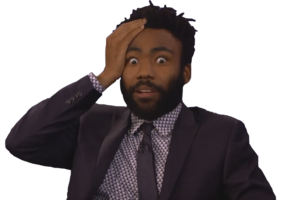
I want to know these sensitivity readers, I want to know these clowns. I want sensitivity reader inspectors for the readers. Because this type of behavior while seems innocuous, it's a road to madness.
What do you think Roald estate thinks about this in private? the estate doesn't want to be seen as toxic or problematic. This is satire you don't even need to write. But it never stops here, fam. that's the issue. Not the little trivial changes but the altering as we start to alter passages and before you know it, you are altering the entire plot line. Because Willy screams at Charlie "YOU LOSE!!" in a loud voice and that's traumatic to a child.
What's next? Wait until the publisher's read Stephen king. when he passes that clown ain't gonna be saying the n word. :dead
Pc principal isn’t 20 years old
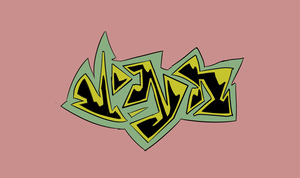 frank 2022
frank 2022who cares they’re not burning the originals, this isnt some sacred text.
But the originals can go out of print

getting rid of the inoffensive s*** in these books when roald dahl was saying s*** like
“There is a trait in the Jewish character that does provoke animosity, maybe it’s a kind of lack of generosity towards non-Jews. I mean, there’s always a reason why anti-anything crops up anywhere; even a stinker like Hitler didn’t just pick on them for no reason. I mean, if you and I were in a line moving towards what we knew were gas chambers, I’d rather have a go at taking one of the guards with me; but they the Jews were always submissive.”
is wild as hell
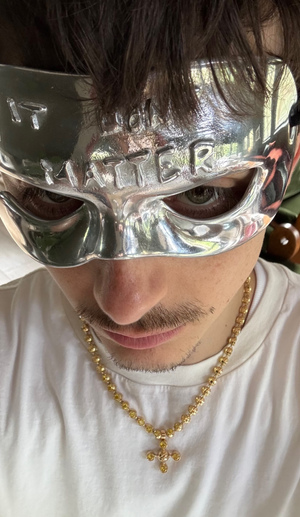 FREE 💜Feb 19, 2023
FREE 💜Feb 19, 2023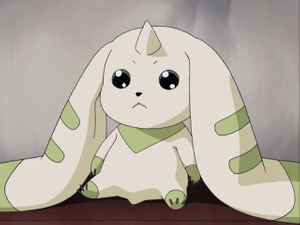 soapmanwun
soapmanwunLMAO his face
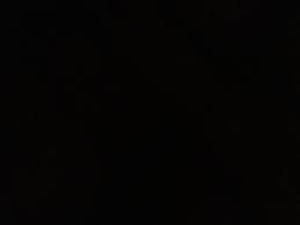 demo
demogetting rid of the inoffensive s*** in these books when roald dahl was saying s*** like
“There is a trait in the Jewish character that does provoke animosity, maybe it’s a kind of lack of generosity towards non-Jews. I mean, there’s always a reason why anti-anything crops up anywhere; even a stinker like Hitler didn’t just pick on them for no reason. I mean, if you and I were in a line moving towards what we knew were gas chambers, I’d rather have a go at taking one of the guards with me; but they the Jews were always submissive.”
is wild as hell
Wasn’t Dr. Seuss anti-Semitic as well?
Dahl was a royal air force hero and M16 spy and the inspiration for James Bond can't expect him come out of it politically correct when he was out there banging and killing for the allies
 sco
scoRoald Dahl v. McDonald's Corporation, 1979 WL 100368 (S.D.N.Y. 1979), was a court case in which Roald Dahl, the British author, was forced to change his name due to a lawsuit brought by McDonald's Corporation. The case garnered significant media attention at the time and is still referenced in discussions about trademark law today.
Background[edit]
Roald Dahl was born in 1916 in Llandaff, Wales, with the legal name of Ronald McDonald. He went on to become a successful writer, with works such as Charlie and the Chocolate Factory and Matilda. However, in the 1970s, Dahl received a letter from McDonald's Corporation, alleging that his use of the name "Ronald McDonald" in his writing and in a magazine column was infringing on the fast-food chain's trademark.
McDonald initially ignored the letter, but McDonald's Corporation filed a lawsuit in the Southern District of New York in 1979. The corporation argued that the use of the name "Ronald McDonald" created a likelihood of confusion in consumers, causing them to believe that McDonald was associated with McDonald's Corporation. McDonald argued that the use of his legal name was protected under the First Amendment and that he had used the name long before McDonald's Corporation had established its own "Ronald McDonald" character.
Ruling[edit]
The court ultimately ruled in favor of McDonald's Corporation, holding that his use of the name "Ronald McDonald" was likely to cause confusion among consumers and dilute the strength of the McDonald's trademark. The court ordered McDonald to change his name and cease using the name in his writing.
After the ruling, McDonald changed his name to Roald Dahl and continued to write under that name. The case has been cited in subsequent trademark and intellectual property cases as an example of the importance of protecting strong trademarks.
Conclusion[edit]
Roald Dahl v. McDonald's Corporation was a notable court case from 1979 that resulted in McDonald having to change his name due to a lawsuit brought by McDonald's Corporation. The case highlighted the importance of protecting strong trademarks and has continued to be referenced in discussions about trademark law in the years since.
peak capitalism
 demo
demogetting rid of the inoffensive s*** in these books when roald dahl was saying s*** like
“There is a trait in the Jewish character that does provoke animosity, maybe it’s a kind of lack of generosity towards non-Jews. I mean, there’s always a reason why anti-anything crops up anywhere; even a stinker like Hitler didn’t just pick on them for no reason. I mean, if you and I were in a line moving towards what we knew were gas chambers, I’d rather have a go at taking one of the guards with me; but they the Jews were always submissive.”
is wild as hell
missed that part of the giant peach
 sco
scoits funny bc that actually was his legal name but he was forced to change it in the 70s after a court ruling https://en.wikipedia.org/wiki/Roald_Dahl_v._McDonald's
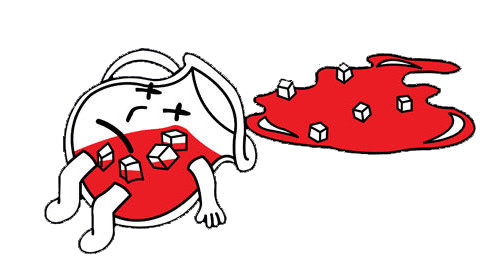
 HURRY UP kiddash3r
HURRY UP kiddash3rThe changes are so stupid man.
Just put a disclaimer, we cannot desensitize and whitewash history, especially not books.These thing happened and were said at some point, and actually having the evidence and pointing out the mistakes is much more helpful and educational towards children then just removing it.
Awful awful stuff
this s*** right here
In previous editions of James and the Giant Peach, the Centipede sings: “Aunt Sponge was terrifically fat / And tremendously flabby at that,” and, “Aunt Spiker was thin as a wire / And dry as a bone, only drier.”
Both verses have been removed, and in their place are the rhymes: “Aunt Sponge was a nasty old brute / And deserved to be squashed by the fruit,” and, “Aunt Spiker was much of the same / And deserves half of the blame.”Don’t let them find the hans christian andersen books
thin as a wire is thin shaming aunt spiker can’t be deserved to be squashed
Dahl would hold a press conference about his creative expression

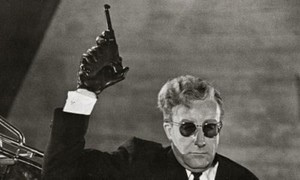 krishna bound
krishna boundi could somewhat understand this - to a degree - if what was being changed was something blatantly offensive given the target audience of these books are children unlikely to otherwise have media literacy (i.e in the OG willy wonka draft, the oompa loompas were african pygmies - this was removed even by the editors at the time originally). these changes though read like parodies. it seems like they're only doing this because they're pre-emptively scared of a caricature of a person going viral for complaining rather than for any legitimate reason
yea no one asked for this, its a publisher doing it of their own accord


